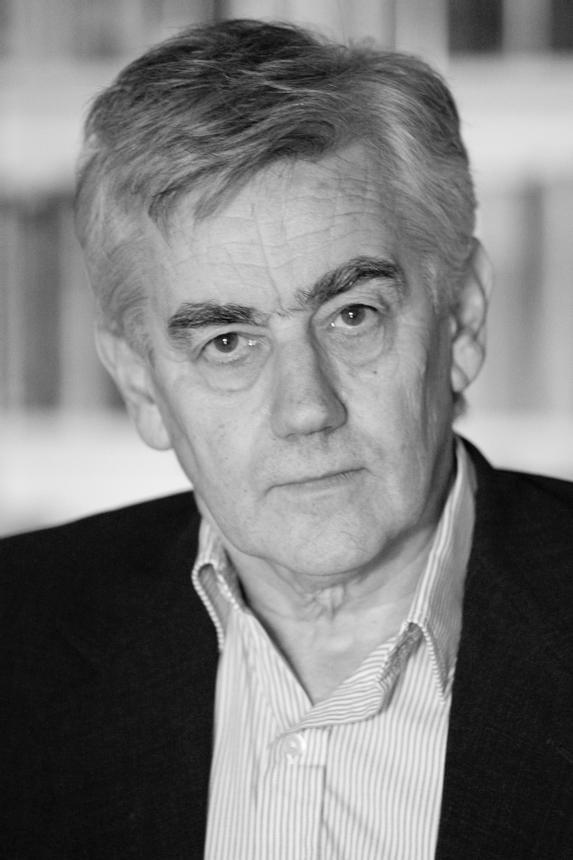The Voyage
Murray Bail
Frank Delage, piano manufacturer from Sydney, travels to Vienna, a city immersed in music, to present the Delage concert grand. He hopes to impress with its technical precision, its improvement on the old pianos of Europe.
How could he not know his piano is all wrong for Vienna? Perhaps he should have tried Berlin.
The Voyage is a masterly novel by a great writer at the peak of his powers.
andThe Voyage
‘Murray Bail is one of the most remarkable of the generation of Australian fiction writers that includes Peter Carey and came to first maturity 25 or so years ago.’
‘There’s a lightness to Bail’s writing—a gentle stealth in its revelations—that slowly but surely brings the reader alive…One of Australia’s most original and imaginative writers.’
‘The Voyage is oblique, idiosyncratic and original. To read it is to breathe the rarefied air of an artistic consciousness, nostalgic for literary modernism. Bail deploys the structural integrity of the journey, such as the single day in Virginia Woolf’s Mrs Dalloway and James Joyce’s Ulysses, to allow the disordered encroachment of the past on the present, and to permit a slippery, subjective treatment of time. This is a novel that demands your full attention, discoursing in an unbuttoned, Joycean fashion, approaching a sort of textual jouissance.’
‘The Voyage is a novel…about lumbering Australia in the vicinity of dark, honest naivety in the vicinity of subtlety and sophistication. But it is also playing (almost like a Roland Barthes drollery) with the fact that only a syllable divides the two worlds. Two words, two worlds. And all the capacity for deception and attraction they might contain. It is a lustrous piece of fiction, consistently surprising and illuminating, full of mirrors and illusions, but with the abiding face of real feeling and deep truth. We won’t see a finer piece of fiction in the longest while.’
‘[Bail’s fiction has always…dealt with what one may call the real world: places and people, how his characters interact, how they are affected by their environment. Yet none of his novels or stories strives to represent reality in the manner of conventional fiction. Politics, social questions, psychological probing or the exploration of feelings do not seem to register on his radar. His works are to be savoured for their elegant artifice. This is particularly true of The Voyage. Its laconic style and Bail’s apparently meandering way of telling his tale—recalling at times the great Austrian eccentric Thomas Bernhard—contribute to the sense that reality is not so much reflected as refracted in these pages. This novel is not the sum of its preoccupations but an essentially abstract work of art: an invention in the sense that Bach and his contemporaries used the term for some of their compositions.’
‘A fine achievement.’
‘Lyricism sits cheek-by-jowl with the absurd. As a translator nibbles Delage’s ear, a piano is dropped from a window, literary festivals are lambasted self-reflexively, and the Sydney Opera House is compared to a pocket handkerchief and is “therefore provincial”. A Patrick White-style self-depracation—of literature, of Australia, of criticism itself—forms part of Delage’s inner conflict…But The Voyage is also about love—or rather how dislocation, memory, work, loneliness, and love whirl around in our daily experience. The surface of the novel might seem as smooth as the deck of the Romance, but that it because of its brilliant executiion. Underneath, the complexities of Downunder roll.’
‘Here sits yet another elegant and most engaging piece of work from the ordered imagination of Murray Bail…a graceful and unfenced read.’
‘This is an astonishing, defiant little book. Though concise in scale, it is vastly thought-provoking…If ever a novel could be said to exceed the sum of its many sensations, this masterful concoction engages, excites and perturbs with singular virtuosity.’
‘A new novel release from Murray Bail is always worthy of rejoice. Few writers anywhere in the world can match the esteemed Australian for stylistic daring. At just 150 pages, The Voyage (only his fifth novel in 32 years) is a short but sumptuous feast that rewards close reading…’
‘Amalia von Schalla is a fabulous creation…she is both real and mythic, a beautifully put together exhibit of old world privilege and beauty, but also subtly, fascinatingly escaping all categorisation…Everything else about Murray Bail’s writing, that, like a twelve tone composition for one of Frank’s pianos, plays certain lines and scenes over and over, linking and creating a story out of events that happen both in Australia and Vienna and on the voyage itself, is surprising and new, beautifully executed. He meticulously fashions a past tense that’s made up of various scenes of the story put together, a sort of simultaneous past, vividly present on the page and whirring and turning with the mechanism of its own ingenious making.’
‘Murray Bail’s masterful novel is essentially a piece of music; and like all good music, although we know the plot from the start, it never fails to surprise us…Brilliant.’
‘[An] astonishingly brilliant, defiant and utterly singular novel of intelligence, narrative shifts and frustrated desire, which makes more than a few nods to Voltaire’s Candide.’
‘Sexy and hugely enjoyable.’
‘A beautifully observed contemplation of life, as a strange dance that holds humanity at an intimate distance.’
‘A rich, sparkling novel that reinvigorates literary modernism and shows a master at work.’












